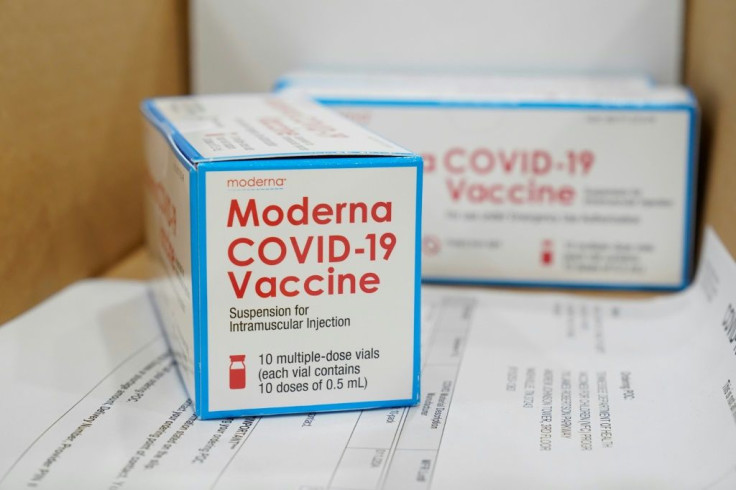Vaccine Distribution Changes; Biden's New Plan

Earlier this week, the Secretary of Health and Human Services (HHS), Alex Azar announced that coronavirus vaccine distribution would be changed to accommodate demand. The whole supply of vaccines, he said, would become available, not just first doses. He said HHS was telling state governments to allow the most vulnerable individuals, besides the elderly in nursing homes, to provide the vaccine.
“We’re telling states they should open vaccinations to all of their most vulnerable people,” said Mr. Azar. Initially, the vaccine was only available to healthcare workers, people living in nursing homes, and nursing home staff. Now, anyone 65 or older, and adults with one risky co-morbidity can get the vaccine. Mr. Azar's guidelines include people as young as 16, Pfizer's vaccine is approved for use in those 16 and up, but Moderna's is only approved for those 18 and older. This applies to people 16 and older with conditions like cancer, kidney disease, heart conditions, pregnancy, and several others listed by the CDC.
This new plan has not been universally embraced. The Washington Post reported that several states were simply going ahead with the original CDC guidelines. Under the CDC’s initial plan the first phase would have been nursing home residents, staff, and health care workers, then would come people over 75 and frontline essential workers, and finally older adults 65-74 and people with “high-risk medical conditions.” This move by the Trump administration skips the middle group that included otherwise healthy frontline workers but who risked exposure to Covid-19 because of their jobs.
President Biden has put forward his own American Rescue Plan, The nearly $2 trillion plan includes $160 billion in funding for a national vaccination program. which would cover: nationwide vaccine distribution; expanding testing and vaccination sites; reopening schools and protecting frontline workers. The plan also includes coverage for immigrants, regardless of their status.
The vaccine is free; there is no copay.
Safe for (almost) everyone
The vaccines are proving to be mostly free of adverse reactions. Earlier this month, the CDC released a report regarding allergic reactions due to the Pfizer vaccine. The report noted that for every million doses of the Pfizer vaccine there were just slightly over 11 allergic reactions. The vast majority of these reactions happened within the first 15 minutes of getting the vaccine. For this reason, people are being asked to stay for observation for those first 15 minutes.
The CDC recently recommended that people who had an allergic reaction to the first dose should not get the second dose. Likewise, people who have had severe allergic reactions to other vaccines in the past or to "polyethylene glycol (PEG) or polysorbate" should consult with a doctor before getting the vaccine. People with other allergies, like food allergies, or latex allergies, can get the vaccine. The CDC did specify that people who have a known allergy to one of the vaccine’s components should not be vaccinated.
According to The New York Times , the vaccine is a mix of genetic material, salts, and fats. Most of the salts and fats are not common causes of an allergic reaction. For those who are worried, a full list of ingredients is available for the Pfizer and Moderna vaccines. According to the CDC, under proper medical supervision, even people with possible allergies to the vaccine can be vaccinated, but the CDC guidelines suggested doing it under the supervision of an allergist-immunologist.
Moderna, the manufacturer of the other major vaccine, announced that its vaccine would provide at least a year of immunity to SarsCoV2.
Other treatments
While widespread vaccination is essential to ending the Covid-19 pandemic, treatments are still needed for people who are and will become sick. There are already several approved and tested drugs to treat Covid-19 patients. Even so, research has continued into new treatment options. Currently, there are 78 active or about to be active trials in phase 1; 262 in phase 2; and 104 in phase 3. These are trials in the United States.
Not all of the trials are on pharmaceuticals. Plasma, a component of blood that can be rich in immune proteins, has long been a focus of Covid-19 research. In early January the New England Journal of Medicine published a paper by a team from Fundación INFANT in Argentina, that showed early administration of convalescent plasma to older adults who had mild cases of Covid-19 decreased their risk of severe respiratory disease. Early in 2021 news came out that one large British trial testing whether blood plasma would have any effect on serious cases of Covid-19 was stopped after researchers found no significant advantages in treating Covid-19 in very ill patients. The trial included 900 patients. Even though that trial is over, research into convalescent plasma is still ongoing.
That same international team of researchers found that two immunosuppressive drugs that treat moderate to severe rheumatoid arthritis, namely tocilizumab and sarilumab, improved survival rates and shortened the time a patient stayed in intensive care. The UK has since approved these drugs to treat severely ill Covid-19 patients.
Other studies into these anti-inflammatory therapies did not find the same positive results; the differences, some said, were in the timing of the therapy and vast differences in illness severity. In the UK, the treated patients were given therapy almost immediately after receiving oxygen.
According to Scientific American, Covid-19 may be the leading cause of death in 2021.
Sabrina Emms is a science journalist who has worked as a researcher, looking at the way bones are formed.



























